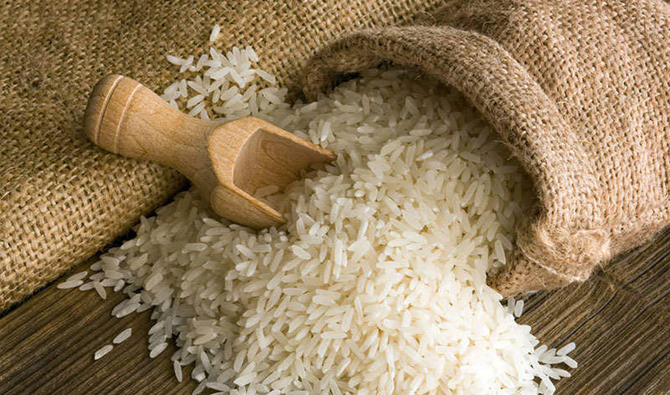(PTI | Islamabad) While Pakistan is fighting a case in the European Union against the Indian move to get Basmati rice registered as its product, the commodity is still not registered as a local product in the country, according to a media report. Laws require that before applying for registration of any product in the international market it has to be protected under the geographical indication (GI) laws of that country.
The Dawn reported that there are no rules of the Geographical Indications (Registration and Protection) Act, 2020 enacted in March this year and as a result, Basmati is not yet a protected product in Pakistan. A rice exporter told the Dawn that exporters, particularly the Rice Exporters Association of Pakistan, had been urging the government since early 2000 to formulate the GI laws.
The issue of protecting Basmati rice as a product of Pakistan came to the forefront after India submitted an application to the European Union claiming sole ownership of the commodity in September this year.
“The laws were finally made in March this year, but the authorities have not yet framed the rules of GI law. As a result many local exportable products cannot be registered anywhere in the world with Pakistani GI tagging,” the exporter said.
“Even now the pressure of the case at the EU is driving the authorities to finalise the rules for GI law at the earliest,” he added.
The issue of protecting Basmati rice as a product of Pakistan came to the forefront after India submitted an application to the European Union claiming sole ownership of the commodity in September this year.
In its application, India has claimed that ‘Basmati’ is special long grain aromatic rice grown and produced in a particular geographical region of the subcontinent. After highlighting the brief history of Basmati rice, India also claimed that the region is a part of northern India, below the foothills of the Himalayas forming part of the Indo-Gangetic plain.
Incidentally, the issue was pointed out to the ministry of commerce and its attached department, the Intellectual Property Organisation (IPO) of Pakistan by the rice exporters after observing the details of fresh applications at the EU website.
Since the case was placed for public hearing and invitation of objections, the matter was taken up by the authorities and Adviser to the Prime Minister on Commerce Abdul Razak Dawood held a meeting in October. Eventually, the Indian claim to the EU was challenged earlier this month and the main argument by Pakistan was that basmati rice was a joint product of India and Pakistan.
Pakistan exported 500,000-700,000 tonnes of basmati rice annually to different parts of the world out of which 200,000 tonnes to 250,000 tonnes is being shipped to EU countries. Meanwhile, responding to a query IPO Spokesman Meesak Arif said that the rules of GI law were at the final stages and were likely to be notified soon.
“The rules are in the printing process and will be notified by the commerce ministry soon,” Arif said, adding that the government had authorised the Trade Development Authority of Pakistan (TDAP) as the lead agency regarding Basmati rice.
Soon after the notification of rules, the TDAP would file for the GI protection of basmati rice in the country, which would eventually make the case of Pakistan at the EU and elsewhere strong, he added. (PTI)

Readers like you, make ESHADOOT work possible. We need your support to deliver quality and positive news about India and Indian diaspora - and to keep it open for everyone. Your support is essential to continue our efforts. Every contribution, however big or small, is so valuable for our future.












What next are they going to fight over haldi? It is preposterous for a country like Pakistan mired in corruption, harbouring terrorists and involved persecution of minorities to suddenly wake up and copy India to register basmati rice. As long as I’ve lived I never ever thought of the grain produced anywhere apart from India